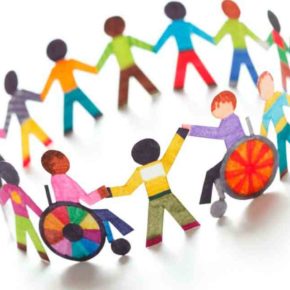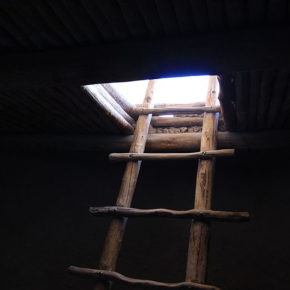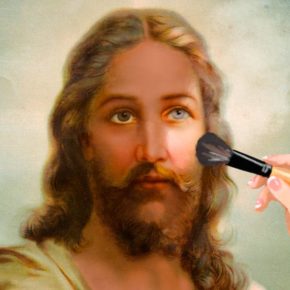One of our Values is being Inclusive, and this is what we say about it:
We want to be an authentic and welcoming church community, journeying to build accepting relationships with each other in dialogue and love. We believe it is in relationship that we discover more of who we really are.
http://www.home-online.org/about/values/
 Recently we had a discussion based evening. It included different elements:
Recently we had a discussion based evening. It included different elements:
- We shared communion, using a simple liturgy that began to help us think about inclusion.
- I gave a quick thought explosion as a way of getting us started.
- We did a group exercise where we looked at three different subjects and wondered what internal bias might look like in that situation.
- In small groups, we mined our knowledge of the stories about Jesus to begin to see if we could see any unconscious bias in the stories we could remember.
- We began to explore if hOME was an inclusive group, or not.
Read on for brief details of what we discovered.
Communion Liturgy
Our opening worship was opened with a responsive prayer loosely based on Psalm 148.
hOME Communion Liturgy 4/8/2019
Thought Explosion
When I was 19 I was taught the competence ladder, in relation to public speaking, particularly preaching.
Noel Burch developed the Conscious Competence Ladder in the 1970s. You can use it to manage your emotions during a potentially challenging learning process.
Mind Tools Summary
The model has four learning levels:
 Unconsciously unskilled: This is the learning stage where you are unaware of what you are doing, in the context of me speaking publicly it was the involuntary use of the expression “erm”.
Unconsciously unskilled: This is the learning stage where you are unaware of what you are doing, in the context of me speaking publicly it was the involuntary use of the expression “erm”.- Consciously unskilled: At this stage, you are aware of what you are doing but unable to prevent yourself. With my public speaking, I became aware I was saying “erm” but couldn’t help myself.
- Consciously skilled: You become aware and are able to change your behaviour, for me stopping myself saying “erm” and being aware I was deliberately not saying it.
- Unconsciously skilled: You become unaware that your behaviour has changed. In my case, I have never conquered my propensity to fill my thinking gaps with “erm”.
About a decade later, it occurred to me that all the people that were coming through into leadership in my organisation were men either my age or older. I began to explore if I was unconsciously unskilled concerning my own inbuilt biases and prejudices.
Now in 2019 the term “unconscious bias” seems to have taken hold and everyone is talking about it.
Countless studies have confirmed the power of racial biases to shape everyday decisions in almost every aspect of life.
- White job applicants were found to be 74% more likely to have success than applicants from ethnic minorities with identical CVs.
- University professors were found to be far more likely to respond to emails from students with white-sounding names.
- US doctors have been found to recommend less pain medication for black or Latino patients than white patients with the same injury.
- White participants in a study were found to perceive black faces as more threatening than white faces with the same expression.
- Neuroscientists have uncovered brain regions involved in racial and gender stereotyping and shown that such stereotypes begin to form early in childhood.
- Recent work found that the brain responds more strongly to information about ethnic groups who are portrayed unfavourably, suggesting that the negative depiction of minorities in the media can fuel bias.
There is no doubt that unconscious bias exists. Sometimes it can be useful and sometimes it can be unhelpful.
Although this video wasn’t shown when we discussed it, it is a great little introduction:
https://www.youtube.com/watch?v=dVp9Z5k0dEE
Group exercise
Thinking about what a gender bias, a sexuality bias and a socioeconomic bias, three groups brainstormed ideas of what it might look like. The considered it in their work, in their homes and as part of the hOME community.
Are there any stories of Jesus that reflect an unconscious bias?
 This was a free-thinking exercise, drawing on the Homies knowledge and insight into the scriptures. It was not carefully researched or thought through analysis of the scriptures. We thought about the stories and then as readers responded to them through the lens of Unconscious Bias that we had begun to explore.
This was a free-thinking exercise, drawing on the Homies knowledge and insight into the scriptures. It was not carefully researched or thought through analysis of the scriptures. We thought about the stories and then as readers responded to them through the lens of Unconscious Bias that we had begun to explore.
Some of the stories we talked about were:
- Stories about tax collectors and prostitutes who are painted as disliked by society but accepted by Jesus. Could this be Jesus deliberately working against others unconscious bias?
- The story about the Canaanite woman. Was the woman calling out Jesus bias towards the people of Israel and against the Canaanites?
- The calling of Male disciples and the story of Mary and Martha. Was Jesus making a Disciple of Martha and turning gender bias on its head?
In what way is hOME biased and what can we do about it?
As a group, we immediately recognised that we were similar in many ways. We wondered if that was a good thing. I observed that some people would love hOME to become more diverse, I also saw what I thought was a smaller number of people who considered it was good for hOME to reflect a particular group of people.